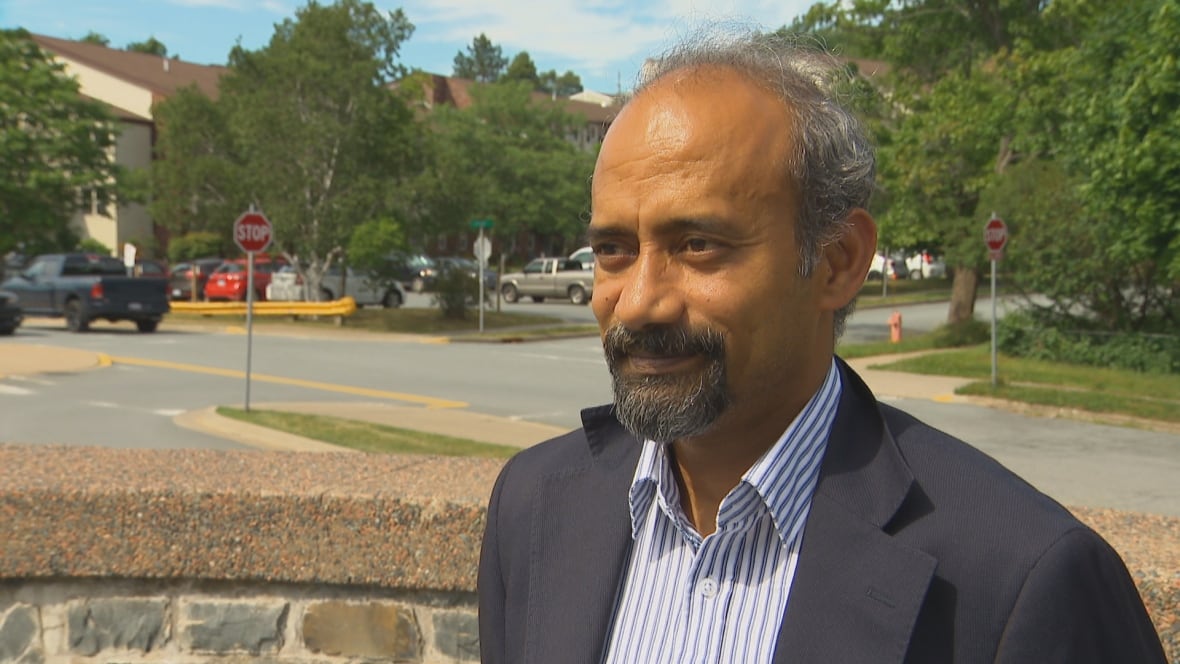Halifax mayor says it's premier's job to intervene when council is wrong
'It's entirely within any premier's wheelhouse,' says Andy Fillmore
Tim Houston is "entirely within his mandate" to get involved in the decisions of municipal governments, said Halifax's mayor Friday, two days after the premier threatened to overturn a decision by regional council.
In an interview at city hall in Halifax, Andy Fillmore said he expected Houston to speak out on council's decision to turn Morris Street into one-way traffic to make room for a two-way bike lane.
"We have to remember that in Canada, municipal governments are creatures of provincial legislation. We only exist because of the provincial governments have created legislation to give us the powers to do the things we do," Fillmore told CBC Radio's Mainstreet.
"Planning powers, traffic authority powers, policing powers, etc., all are at the mercy or the grace of provincial legislation. So it's entirely within any premier's wheelhouse to adjust or to give direction. That's their job."
Houston posted a letter to social media on Wednesday addressed to the mayor, regional councillors and the chief administrative officer saying he had serious concerns about the plan for Morris Street. The letter, signed by Houston, said the change would "contribute to traffic congestion, create unnecessary public safety risks and potentially jeopardize port activity."
Houston said his government would "be forced to act" and overturn council's decision if it doesn't reverse course by Aug. 6. — the day after its next council meeting.
If council doesn't budge, Houston said the province would use Bill 24 for the first time. The bill, which was passed this spring, allows the public works minister to override decisions by municipal councils related to transportation.

Fillmore said he agrees with Houston's concerns and believes the change would hurt truck traffic to the Port of Halifax and delay ambulances.
The mayor voted against the bike lane design last week, but he was overruled by the majority of regional council.
Ahsan Habib, a transportation professor at Dalhousie University, said a public conversation about traffic congestion is important — especially with Nova Scotia's growing population.
"We are a growing city. We are trying to double our population both in the city at the same time as the province and we need to improve our transport infrastructure. The question is how," Habib said.

Habib said whatever the solution ends up being, there will always be a compromise.
"In my opinion, we need to build many more bike lanes, many more public transit services and also make sure our roadways are efficient to carry other traffic cars."
But critics have said they don't believe Houston's intervention is actually about Morris Street. Rather, they believe the premier wants to paint council as dysfunctional to grant Fillmore strong mayor powers. That could allow Fillmore to make decisions without the majority of council and set the budget.
Fillmore has previously said strong mayor powers could improve the current system that is slowing progress on issues he was elected to tackle.
On Friday, he reiterated his interest in the provincial government "improving my accountability to voters."
He disagreed, however, that Houston is using Morris Street as an excuse to grant strong mayor powers, saying those powers would only come amid a pattern of bad moves by council.
Fillmore cited two examples of what he considers poor council decisions: Morris Street, and the back and forth over the Windsor Street exchange redesign, which saw council approve a plan in February that it had rejected just a month earlier.
The mayor said he believes the provincial government would have intervened in the road's overhaul had council not reversed course.
With files from Haley Ryan and CBC Radio's Mainstreet
